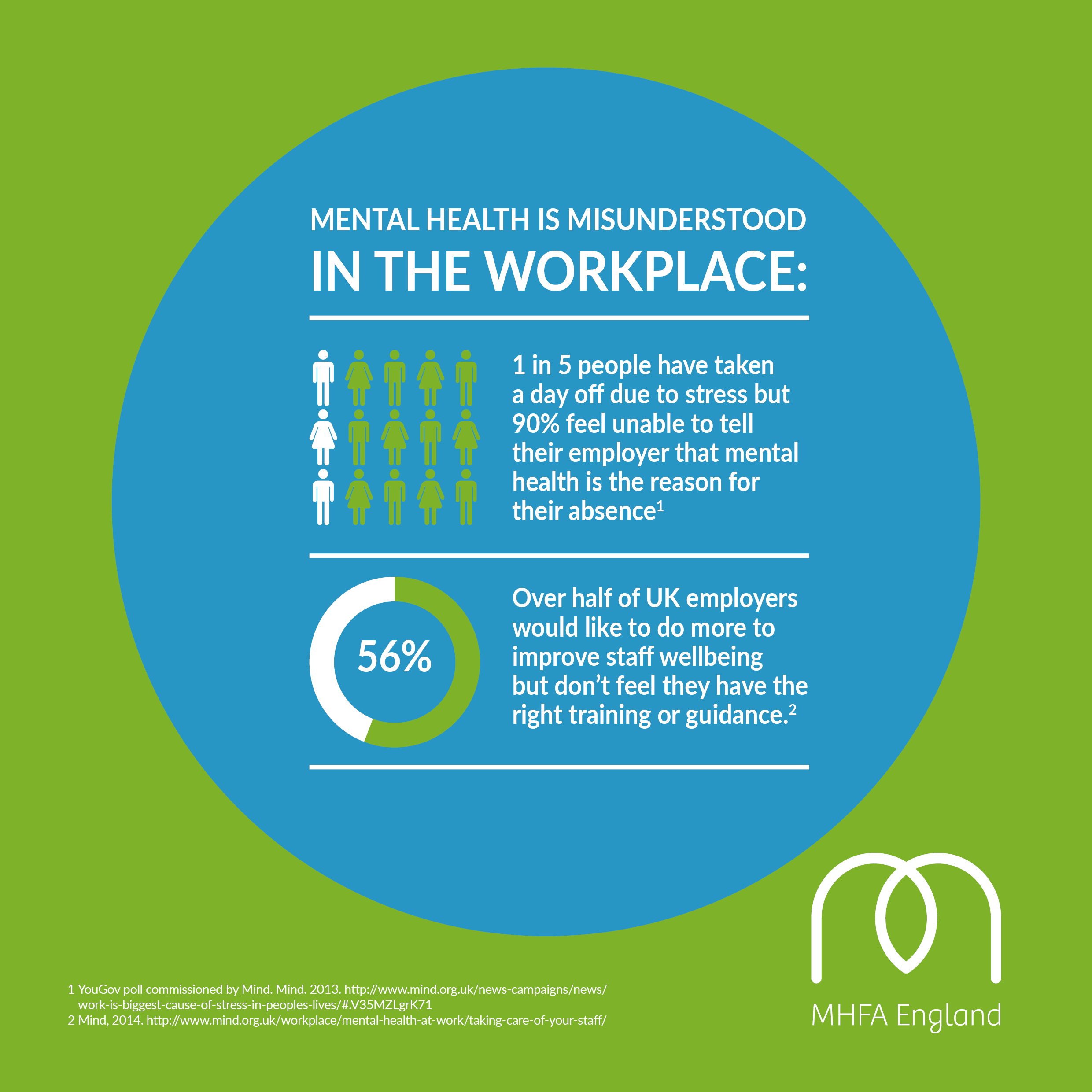
Just another reason giving mental health first aid training is so rewarding – because even though awareness is improving, there’s still a gaping need for greater awareness of mental ill health at management level. 85% of managers feel responsible for employee wellbeing yet at least 50% aren’t receiving any kind of training to execute this duty of care – that’s despite at least 1 in 4 of us experiencing mental ill health every year in the UK and 99 million sick days being taken due to mental ill health every year.
Aside from the prevalence of mental ill health, managers are the role models of organisations and they have a huge effect on employee wellbeing and mental health. They also have the power to implement organisational policy and make positive change. There are so many more stats which make a no brainer business case for mental health first aid training including unsupported mental health costing the UK economy £36 billion a year and over 80% of line managers admitting they’d judge someone with a mental health condition. This is why the watch words of my training business are understand, create, transform. Because any transformation, organisational or otherwise, starts with understanding and having an action plan for change.
As per this insightful article from Health Insurance Daily on occupational health:
‘the Chartered Management Institute suggests workplace training should become a legal requirement.
Nearly half (49%) of managers have never received training on managing mental health in the workplace, according to a survey by the Chartered Management Institute.
Less than a third (30%) have received training in the last 12 months, the poll of nearly 950 managers found.
The survey also shows over half (51%) of managers have had a member of staff disclose a mental health problem, such as stress, anxiety and depression as well as rarer problems like bipolar, eating problems and post-traumatic stress disorder.
This means that over three fifths (62%) of managers who have had a member of their team disclose a mental health problem to them have either never received any training, or received it over 12 months ago, the CMI said.
CMI’s chief executive Ann Francke said there is very long way to go to make mental health training a part of essential workplace practice.
“Line managers play an absolutely critical role in supporting employees’ mental health and wellbeing. Employers are already required by law to provide training on physical health and safety. It’s time the same requirements applied to mental health,” she stated’.
If not now, when?





